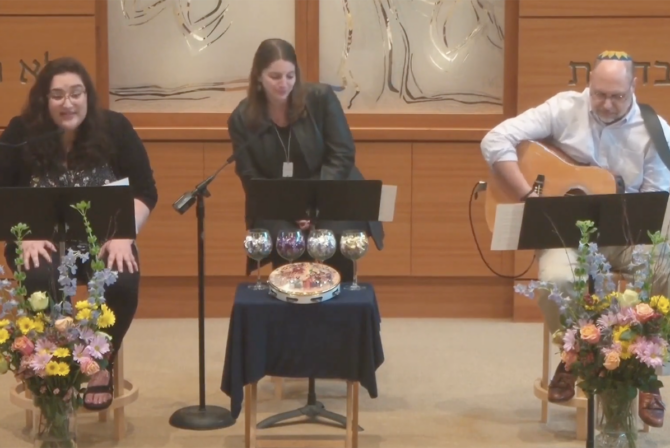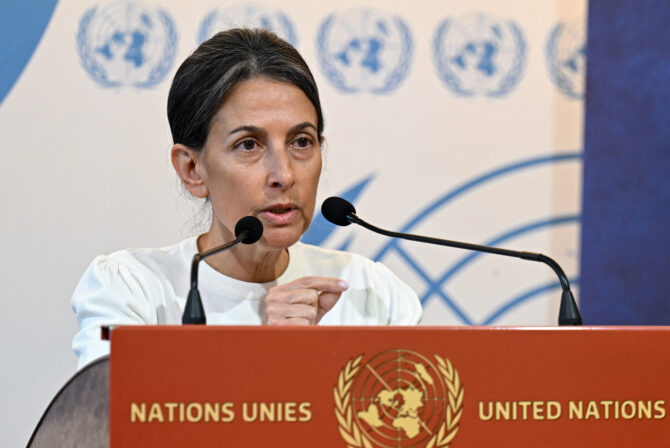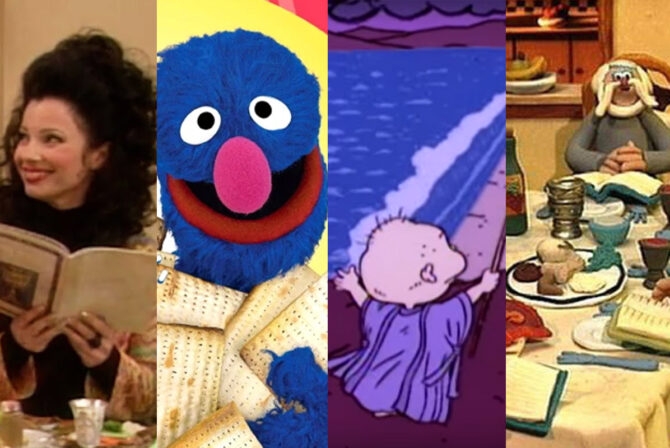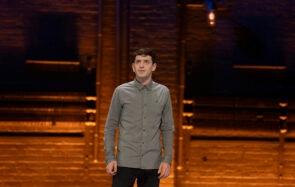Most weekday afternoons, I pick my 7-year-old daughter up from her school, while my 10-year-old son takes the cross-town city bus home from his. Usually, the 10-year-old is home before us, but there have been enough occasions where he’s a few minutes late that I don’t give it much thought.
As a rule, his commute home takes about 20 minutes. On Tuesday, as Winter Storm Janus dumped multiple inches of snow over New York City, my son wasn’t home 20 minutes after class let out. He wasn’t home 30 minutes later, either. I told myself the buses were probably delayed due to the weather.
Forty minutes after class let out (and about 20 minutes after he should have been home), my son called on his cell phone (no apps, no games, just emergency minutes) to say the buses were so packed, no one was letting him on. (He is skinny and well-mannered. Neither trait is particularly conducive to shoving your way onto an NYC bus.)
He got cold waiting outside (this was not the moment to ask him, “So who was right, telling you to put your ballet tights on under your pants this morning? Mommy, that’s who!” though I did consider it) and returned to his school to appraise me of the situation.
My first instinct was to go to school and get him. But, there was my daughter. I could either take her out into the cold too, or I could leave her home alone. And while I have left her alone in the past (you may have read about it, here), it’s usually for no more than 15-20 minutes. This might take close to an hour, round trip, especially if the buses were running as he described. Furthermore, if he couldn’t fight his way onto a crowded bus, what good would it do for me to join him? We’d only be less likely to fit together.
Before I could respond, my son told me he wanted to take another bus. This one also leaves from close to his school and drops off around the corner from our house but, the catch is, that stop serves four other city buses. With three of them going in the opposite direction. If he got on the wrong one, he could end up downtown.
“OK,” I told him cautiously. “But make sure you get on the one you need.”
“I will,” he promised.
And then I didn’t hear from him again for another 20 minutes.
My daughter asked if Mommy was OK. I kept jumping up every time I thought I heard someone at the door. And I wasn’t talking much. That’s never a good sign.
I assured her everything was fine.
I assured myself everything was fine.
When the phone finally did ring, I snatched it up and asked, “Are you on the bus?”
“No,” he said. “That one isn’t coming, either. Can I walk home?”
My son’s walk home takes him through Central Park. He’s done it before. But, he’s never done it in a blizzard.
“OK,” I said.
I considered keeping him on the phone for the duration of the walk. But, I wanted him focused on where he was going to prevent slipping or getting lost. Keeping him on the phone seemed like an unnecessary distraction.
The next time he called, he reported, “I can’t feel my fingers and toes.”
“Where are you?” I demanded.
“In the field house.” It’s a spot about halfway between school and home, used for sports and other recreational activities. “I stopped in to warm up.”
“That was really good thinking,” I told him, impressed. It hadn’t occurred to me to suggest it.
It did, however, occur to me to go and fetch him the rest of the way.
And then I thought about my father. My father has many wonderful qualities. He also has some less than wonderful qualities. His over-protectiveness is both. On the one hand, we know he’s always got our backs and no matter how bad of a jam we get in, he will do his best to fix it. On the other hand, the first thing my father does whenever anyone tells him something they’re planning to do, is to make a comprehensive list of everything that can–nay, will–go wrong. He claims that by pointing out potential pitfalls, he’s helping us avoid them. All I know is, the end result is that, before I start any project–work, home, you name it–I feel helplessly convinced I won’t be able to pull it off. I know this about myself. I know why I feel it. I struggle not to feel it. And yet I feel it anyway.
I don’t want my kids to feel that way. I want them to believe that they are competent and resourceful and empowered enough to handle any problem that comes their way.
It’s why my husband and I work so hard to make our kids independent, even acting in ways that catch us tons of flak from other parents, like not letting our oldest be labeled special needs, or not stepping in when our kids have problems at school, or leaving them home alone for short stretches. We want to raise kids who can think their way out of a crisis, instead of waiting helplessly for rescue that might never come (when you’re the child of a Soviet Jew and an African-American, your life is full of stories about nobody coming to help you).
We want to raise kids who, when they’re not with us, can still be counted on to take care of themselves. We want to raise survivors.
And so I told my son, “OK, I’ll see you at home. Call me if you have any problems.”
He didn’t call me again. He arrived home about a half hour later–90 minutes after he’d first left school.
His hands were so stiff, he could barely turn his key in the lock. Ice had literally frosted over his shoes.
I instructed him to just dump all his clothes on the floor (not something I usually allow) and jump straight into the bath I’d been keeping hot for him for the last hour.
He did so gratefully.
I gave him some time to thaw out, and then, after listening to him explain how he’d checked the posted bus schedule to make sure he’d get on the right one had it arrived (something else I didn’t tell him; he figured it out by himself), I told him, “I am so, so proud of you!”
He grinned ear to ear, positively beaming.
“I’m so, so happy I didn’t freeze to death,” he informed me.
“Were you scared?” I asked.
He shrugged. “Little bit.”
“But you did it anyway!”
“I did it,” he repeated, part stunned, part impressed with himself. And smiled again.
I smiled, too.
We did it.







